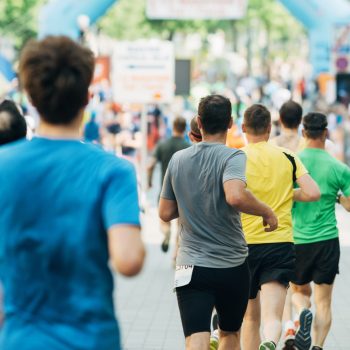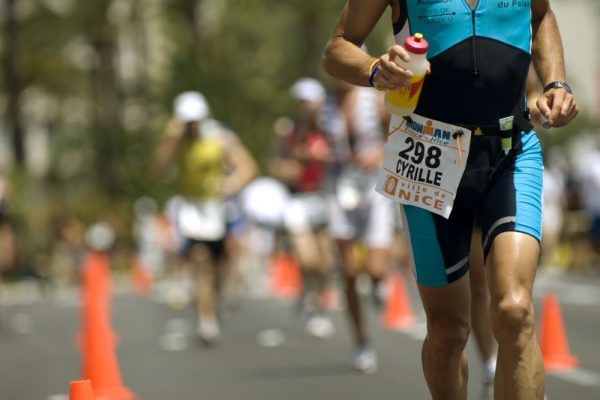Ahead of a busy marathon and endurance event season, we sat down with our in-house Performance Nutritionist, Owen, for his nutritional insights and top tips for how to fuel for successful marathon or endurance race.
“There are many nutritional considerations that distance runners will have to acknowledge when training for a half marathon, dehydration, overhydrating, running out of energy, overheating, cramping and gastrointestinal upsets to name a few.
Fuelling training runs
“Carbohydrates will be the primary fuel source during distance events due to the intensity and duration. However, the body will need different amounts of carbohydrate depending on the aim of the training run. Generally, the longer and harder the run, the more carbohydrates you will need. Based on this, you will then work your nutrition around your training schedule e.g., if you plan to run a long distance on a Saturday, then carbohydrate intake should be increased on the Friday to allow enough fuel to be stored in the body. This method of nutrition practice is based on fuelling for the work required, where you change your food intake day to day depending on the physical demands of that day/session.
“Training runs can also be useful to practice your race nutrition; this will help to avoid any gut upsets and will allow you utilise the fuel better. For the longer runs, you can start to load with carbohydrates the day before with foods such as pasta, rice, potatoes, porridge, fruits & smoothies. Then, fuel the run on the day with a high carbohydrate breakfast such as porridge with banana or dried fruit and honey, bagels with peanut butter, eggs on toast and fruit juice or a fruit smoothie. During the run, you can start to introduce simple carbohydrate foods as you run to help keep you topped up and avoid running out of energy. In the table below is a rough guide on how many carbohydrates you would need based on the duration of your training run.

The day before the race
“Fatigue during prolonged exercise is often associated with muscle glycogen depletion and reduced blood glucose concentrations (via inadequate carbohydrate intake). Carbohydrates can deliver energy much faster to the muscles than fats but have a much smaller storage capacity and so can deplete during prolonged events. Using your carbohydrate loading strategy from your training runs in the days before the event can help to maximise the carbohydrates that are stored in the muscle and liver to fuel the event. Hydration is also important to maintain during this time.”
The morning of the race
“The majority of carbohydrates should have already been consumed in the days prior. The pre-race meal should be around 2-3 hours before the event and should simply be a top up of carbohydrates to ensure the tank is full before start. Oats, bagels, fruits and smoothies are all great options.”
During the race
“It’s important that you do not try anything new on race day. Stick to the products that you know and are comfortable with and simply replicate the strategy you have built from your training.”







